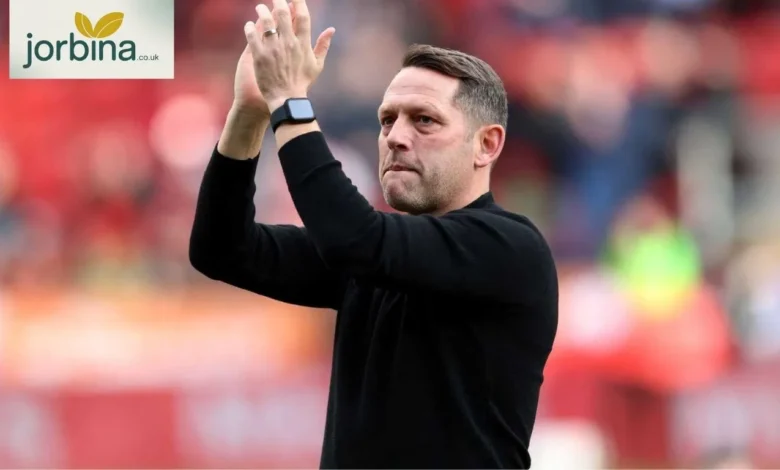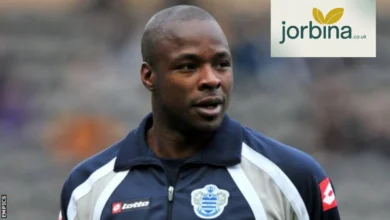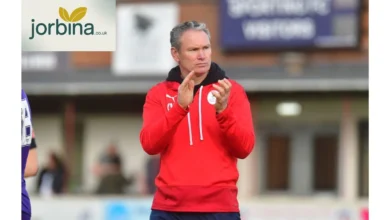Why Matt Bloomfield Stands Out in English Football

Ever wonder how some people manage to stay grounded in a sport that’s constantly changing? Matt Bloomfield is one of those rare figures who’s built his career not on hype or headlines but on dedication, consistency, and quiet leadership. His story starts on the pitch, grows through two decades at Wycombe Wanderers, and continues now from the manager’s seat.
Let’s take a closer look at how Matt Bloomfield became one of English football’s most respected names, his playing days, the jump into management, his time at Luton, and why his name still means something real in the game.
Early Days: Where It All Began
Born on February 8, 1984, in Felixstowe, Suffolk, Matt Bloomfield grew up with the same dream as countless kids across England: to play professional football. His talent was clear early on, and Ipswich Town’s academy spotted it. That’s where he learnt discipline, technique, and the foundations that would later define his game.
He didn’t break into Ipswich’s first team, but that early experience gave him perspective. Instead of letting it stop him, he took a leap that would change everything, signing for Wycombe Wanderers in 2003.
A Wycombe Legend in the Making
If loyalty were a stat, Matt Bloomfield would top the charts. He joined Wycombe at just 19 and stayed nearly two decades, making over 480 appearances and scoring 40 goals. Few players in modern football can say they’ve represented one club for that long.
At Wycombe, Bloomfield wasn’t the flashiest midfielder, but he was the heartbeat of the team. He worked hard, covered every blade of grass, and set standards that young players tried to match. Whether in League Two or battling it out in the Championship, his leadership was steady and dependable.
Bloomfield’s career wasn’t about chasing big contracts or constant moves; it was about belonging. He embodied Wycombe’s spirit: humble, hard-working, and always improving.
Matt Bloomfield’s Stats and What They Say

Numbers don’t tell the whole story, but they paint part of the picture. Across his time at Wycombe Wanderers, Matt Bloomfield played close to 500 professional games and notched dozens of goals. More importantly, he was part of multiple promotions, key survival battles, and moments that built the club’s identity.
His stats also reflect his consistency. Over the years, he played under different managers, adapted to tactical changes, and still maintained a high level of performance. When his playing days ended, it wasn’t because the fire went out; it was because he was ready to take on a new challenge.
From Captain to Coach: The Next Chapter
After retiring from playing, Bloomfield’s transition into management felt natural. He understood players, knew how to motivate them, and could see the game from a strategic point of view. That’s what led him to begin his coaching journey and eventually take the reins at Wycombe Wanderers.
You can learn more about his professional path on his LinkedIn profile, which outlines his progression from captain to coach and now to head manager. His managerial journey reflects a similar ethos to his playing career: steady, thoughtful, and built on relationships.
Matt Bloomfield as Wycombe Manager
In 2023, Bloomfield took charge of Wycombe Wanderers. It was a natural fit. The club trusted him, the fans respected him, and the players believed in him. He didn’t walk into a glamorous situation but rather one that needed rebuilding, structure, and belief.
Under his leadership, Wycombe began finding stability again. He introduced a tactical approach based on possession and pressing, often setting up in a 4-2-3-1 formation. That system reflected his understanding of balance: solid at the back, creative up front.
But in football, progress isn’t always linear. Challenges come fast, and opportunities often come faster. That’s when Luton Town came calling.
The Move: Matt Bloomfield at Luton Town
When Luton Town offered Bloomfield a managerial role, it wasn’t an easy decision. Leaving Wycombe, the club he’d called home for nearly 20 years, was emotional. But for someone who values growth and learning, the chance to lead a Championship club was hard to ignore.
He officially joined Luton Town as manager in early 2025. It was a big step, and not without risk. The club was in a transitional period, dealing with tough fixtures and a demanding league. But Bloomfield embraced the challenge, focusing on building a foundation rather than chasing short-term wins.
In an interview with BBC Sport, titled Matt Bloomfield: Luton Town boss on ‘complex’ transfer window, he spoke candidly about navigating the pressures of managing in a higher division and the importance of patience during a rebuild. His humility stood out; he never overpromised, just stayed committed to improvement.
Why Did Matt Bloomfield Leave Wycombe?

So, why did Matt Bloomfield leave Wycombe? The short answer is growth. After achieving so much there, as both a player and a manager, he felt ready for something different. Luton offered not only a bigger stage but also a new test of his ideas and adaptability.
For Wycombe fans, his departure was bittersweet. They understood it wasn’t about disloyalty; it was about evolution. In football, timing is everything, and for Bloomfield, the time felt right.
Matt Bloomfield, Palmer Square, and What It Means
You might have come across “Matt Bloomfield Palmer Square” in searches or discussions. While it sounds like a location, it’s more symbolic than physical. It represents the way Bloomfield talks about grounding himself, returning to his roots, staying humble, and remembering why he started.
He’s known for reflecting deeply on his journey, using those lessons to stay balanced. Whether he’s managing in the Championship or working through a difficult run of results, he returns to that sense of foundation, his own version of “Palmer Square”.
What Matt Bloomfield Stands For
Football’s full of noise, transfers, controversies, and big egos. Matt Bloomfield stands for something quieter but stronger: purpose. He believes in developing players, in staying true to his principles, and in doing things the right way.
He doesn’t need to shout to be heard. His calm, consistent leadership has earned respect across English football. Players trust him because he’s been in their shoes. Fans admire him because he never fakes passion. And clubs value him because he brings stability where it’s needed most.
Age and Legacy
At 41, Matt Bloomfield already has a football life packed with experience. From his teenage years at Ipswich to his long career at Wycombe and his current challenge at Luton, he’s seen nearly every side of the game.
His story isn’t finished yet, but it’s already meaningful. In an age when loyalty is rare, he’s proof that you can still build a legacy through consistency, respect, and genuine love for the sport.
Why Matt Bloomfield Still Matters

Here’s the bottom line: Matt Bloomfield matters because he represents football at its purest. He’s not chasing fame; he’s building something sustainable. His leadership is rooted in humility and intelligence, not ego.
His journey reminds fans that success doesn’t always come from the loudest voice; it comes from steady, focused work over time. Whether at Wycombe, Luton, or wherever his path leads next, Bloomfield’s influence will continue to grow.
And if you enjoy following behind-the-scenes football stories, you might also want to check out What Jack Heald Revealed Left Fans Speechless, another look into how passion and football culture connect in surprising ways.
FAQs
What is Matt Bloomfield known for?
He’s best known for his long career at Wycombe Wanderers and his smooth transition from loyal club captain to thoughtful manager.
Who is the new Wycombe Wanderers manager?
After Bloomfield’s move to Luton, Wycombe appointed a new head coach to continue his rebuilding work.
Is Matt Bloomfield married?
Matt Bloomfield keeps his personal life private, focusing public attention on his football career.
What formation does Matt Bloomfield play?
As a manager, he often sets up his teams in a 4-2-3-1 formation that balances defensive structure with creative attacking options.
What is the behaviourist theory of Bloomfield?
In football terms, it’s his philosophy of shaping player habits through repetition, trust, and environment, developing behaviour that reflects values, not just tactics.



